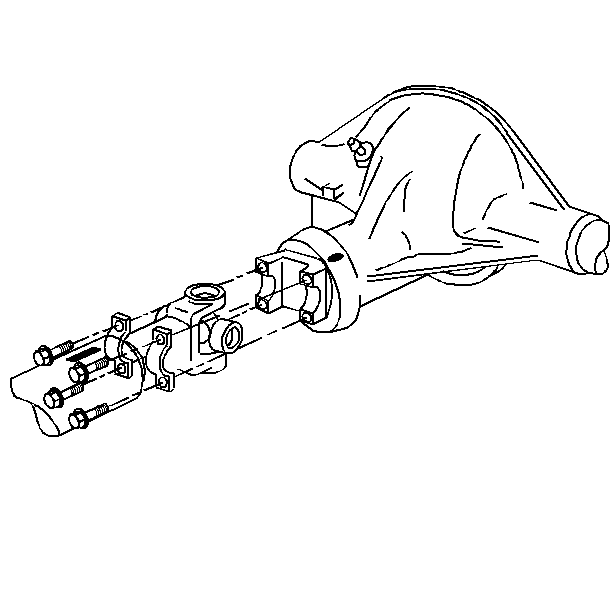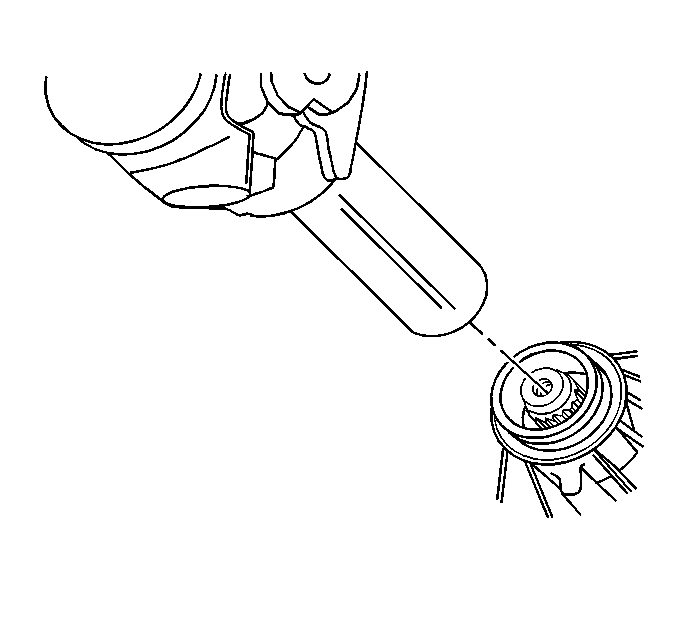Removal Procedure
- Raise the vehicle. Refer to Lifting and Jacking the Vehicle in General Information.
- Reference mark the propeller shaft to the rear axle pinion yoke.
- Reference mark the propeller shaft to the transmission.
- Remove the bolts and the yoke retainers from the rear axle pinion yoke.
- Slide the propeller shaft forward in order to disconnect the propeller shaft from the rear axle pinion yoke.
- Slide the propeller shaft rearward in order to disconnect the propeller shaft from the transmission.
- Remove the propeller shaft.
Important: Observe and accurately reference mark all driveline components relative to the propeller shaft and the axle before disassembly. These components include the propeller shaft, the pinion flange. All components must be reassembled in the exact relationship to each other as they were when removed. In addition, published specifications and torque values, as well as any measurements made prior to disassembly must be followed.

Notice: When removing the propeller shaft, do not attempt to remove the shaft by pounding on the yoke ears or using a tool between the yoke and the universal joint. If the propeller shaft is removed by using such means, the injection joints may fracture and lead to premature failure of the joint.

Installation Procedure
- Inspect the splines of the slip yoke for a sufficient coating of grease. If the splines of the slip yoke does not have a sufficient coating of grease, lubricate the shaft with grease GM P/N 12377985 or equivalent.
- Install the propeller shaft into the transmission. Align the reference marks made during removal.
- Install the propeller shaft to the rear axle pinion yoke. Align the reference marks made during removal.
- Install the yoke retainers and the bolts.
- Lower the vehicle. Refer to Lifting and Jacking the Vehicle in General Information.


Notice: Use the correct fastener in the correct location. Replacement fasteners must be the correct part number for that application. Fasteners requiring replacement or fasteners requiring the use of thread locking compound or sealant are identified in the service procedure. Do not use paints, lubricants, or corrosion inhibitors on fasteners or fastener joint surfaces unless specified. These coatings affect fastener torque and joint clamping force and may damage the fastener. Use the correct tightening sequence and specifications when installing fasteners in order to avoid damage to parts and systems.
Tighten
Tighten the bolts to 20 N·m (15 lb ft).
